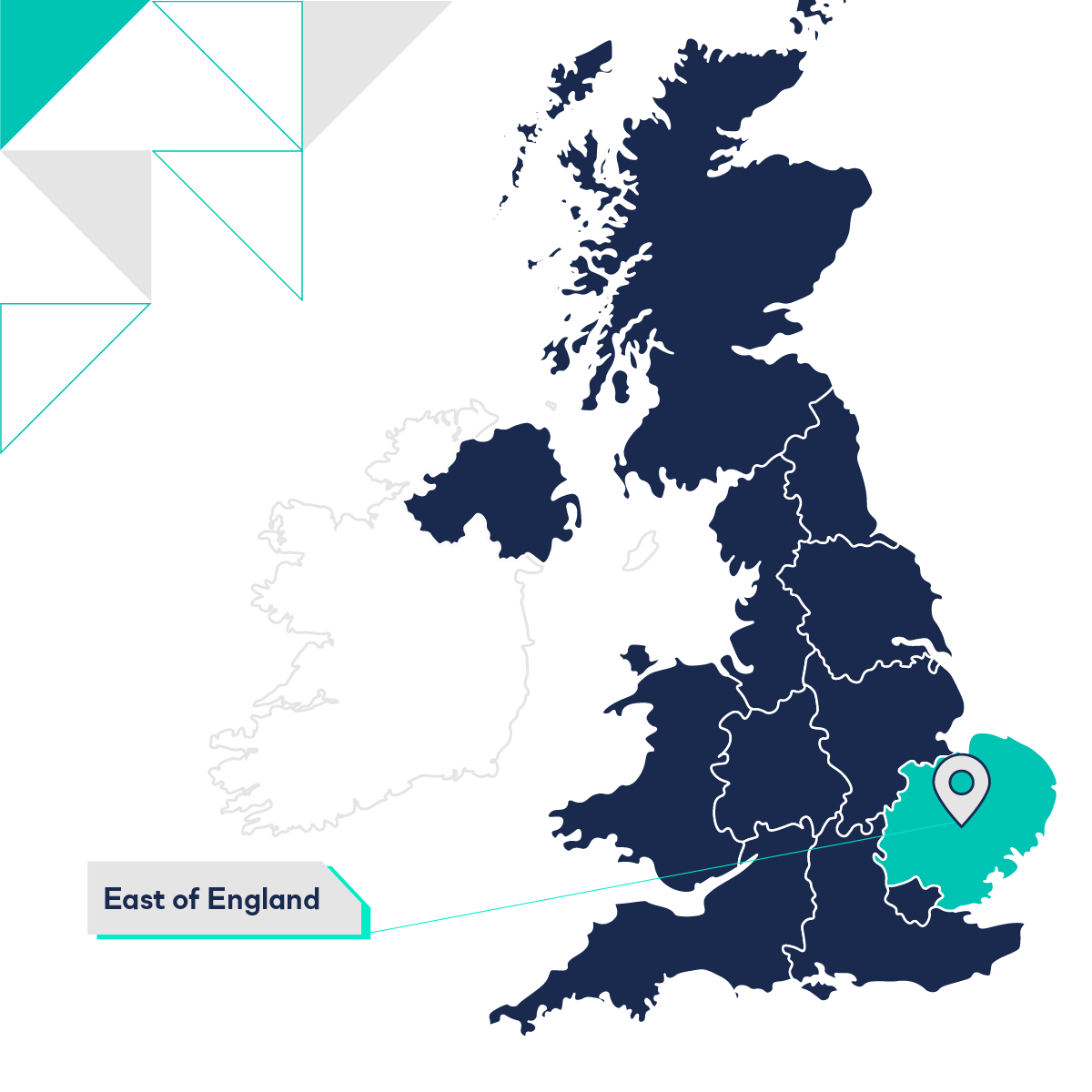Introduction
In this Regional Market Report series we examine land constraints impacting the East of England.
We’ll be taking a look at the proposed changes to the National Planning Policy Framework (NPFF), focusing on the various land constraints and which local authorities are most impacted.

Land Constraints
In December 2022, the Government released a range of changes to the current national planning policy (the NPPF), as well as a prospectus outlining further policy changes that will come in 2023. Among the most significant changes proposed within this update relate to the protections afforded to Green Belt.
Currently, local unmet housing need can be used as part of the ‘exceptional circumstances’ that can allow Green Belt to be released from protection as part of a Local Plan review, or as part of the ‘very special circumstances’ to allow protected Green Belt to be built on as part of a (usually speculative) development. The latter usually takes place during an appeal and in situations where local policies are out of date or where a five-year land supply cannot be demonstrated.
The changes proposed to the NPPF make it explicit that Green Belt does not have to be reviewed to allow housing targets to be met, it also protects Councils from speculative development in cases where they do not have a five-year land supply – if their Local Plan is less than five years old. These changes will come into effect immediately upon publication of the new NPPF, so we may see appeal wins drop off a cliff.
On top of all this, the long-awaited Biodiversity Net Gain requirements brought in by the Environment Act, kick in in 2024. This may bring further delays as developers battle it out over offset sites that may be necessary to make larger green-field sites deliver the required 10% uplift in biodiversity. In light of all this, it will be very interesting to see how the Housing Delivery numbers change over the coming months.
This section of the report looks at how much of the area is constrained for development, not just by Green Belt, but also by Areas of Outstanding Natural Beauty, Sites of Special Scientific Interest, and National Parks.
East of England Land Constraints
The East of England contains some of the Metropolitan Green Belt, which surrounds London; it also contains the Broads,and several AONBs. As a result, several of the LPAs within this region are severely affected by land constraint, as shown in the following table.
Related Resources
If you've enjoyed the data insights about land constraints in the East of England, check out our other reports for the region below:
- East of England: Local Planning Authority Performance
- East of England: Determination Periods and Application Approvals
- East of England: House Price Growth & Affordability
- East of England: Demographics, Density & Migration Patterns
- East of England: Strategic Land